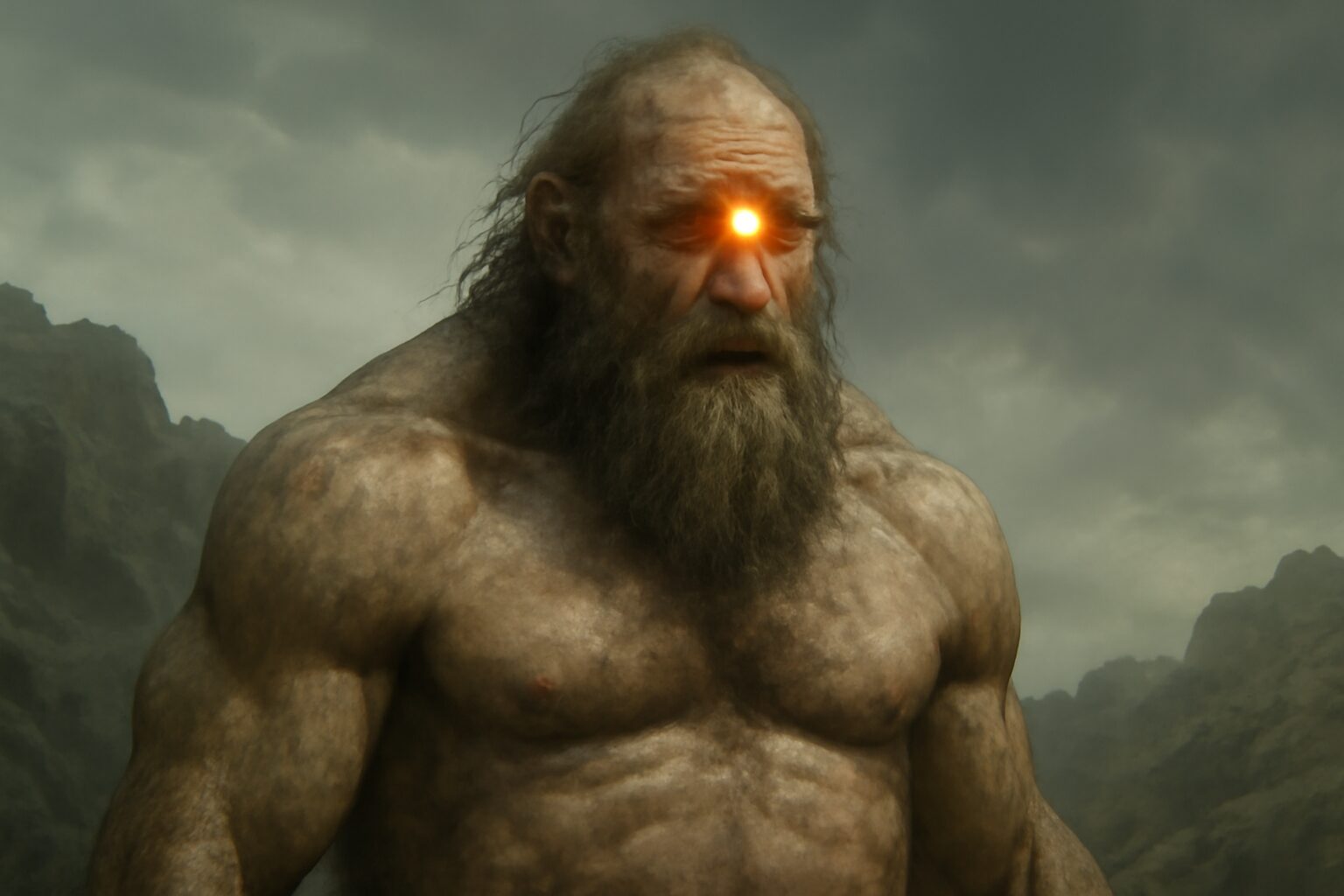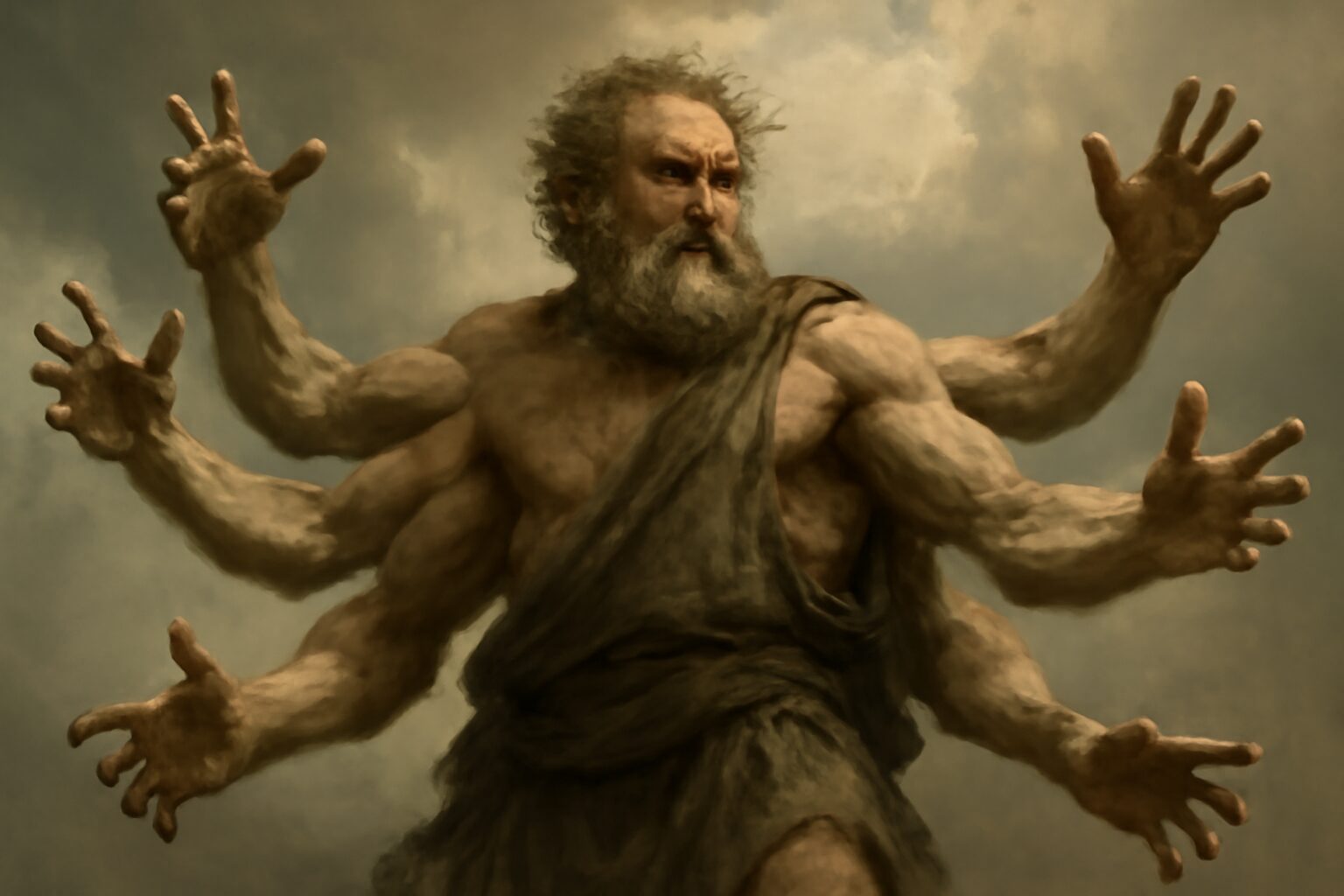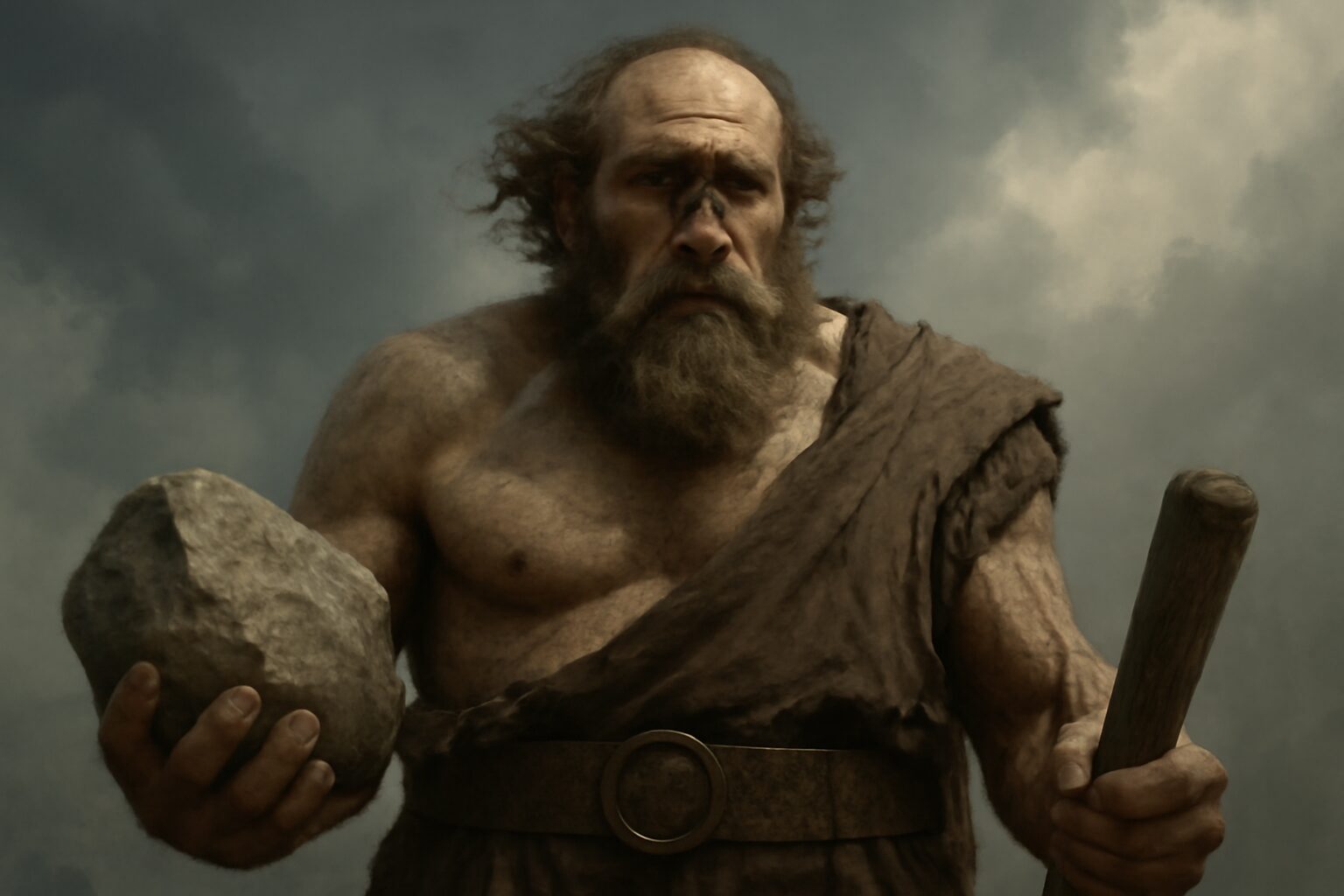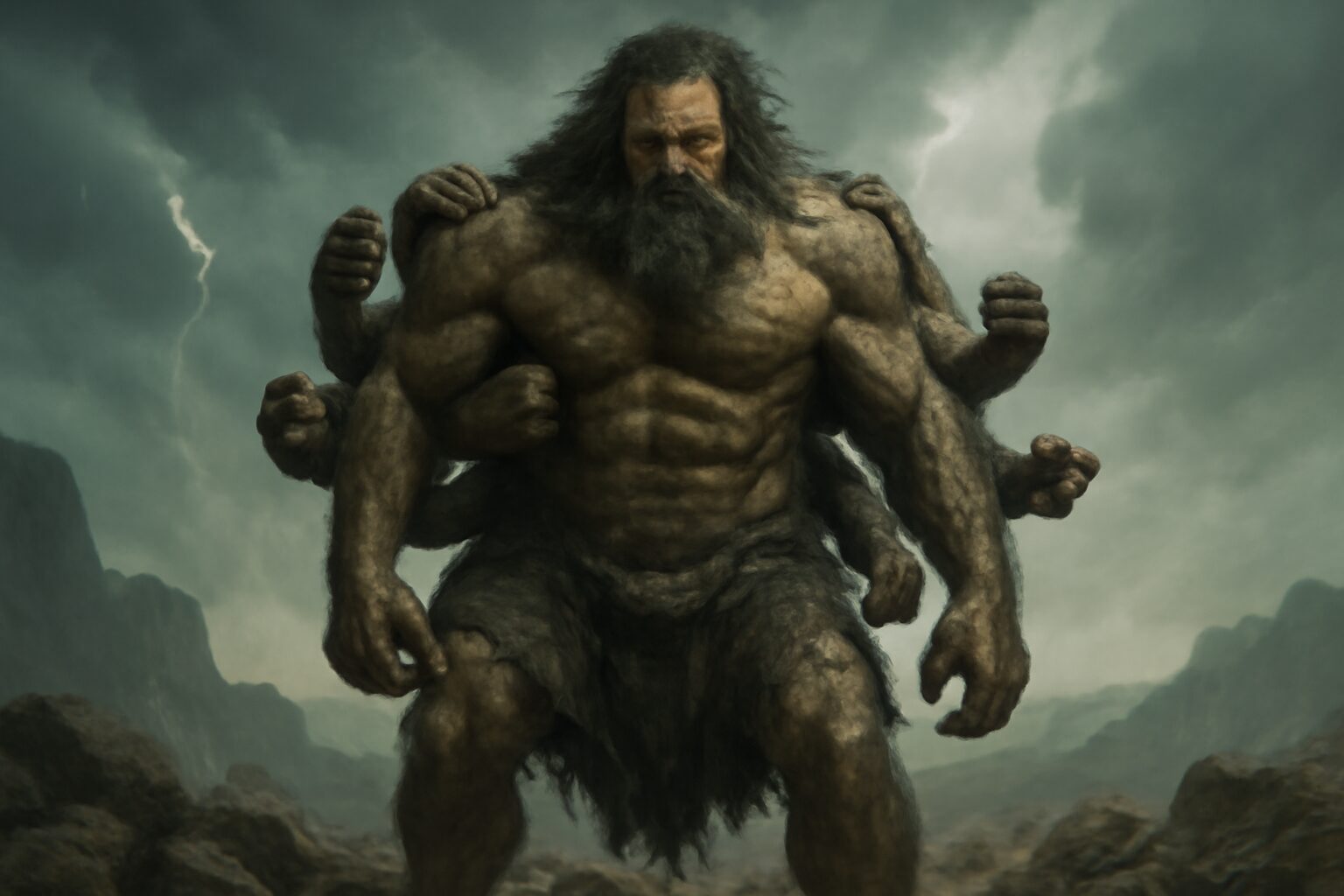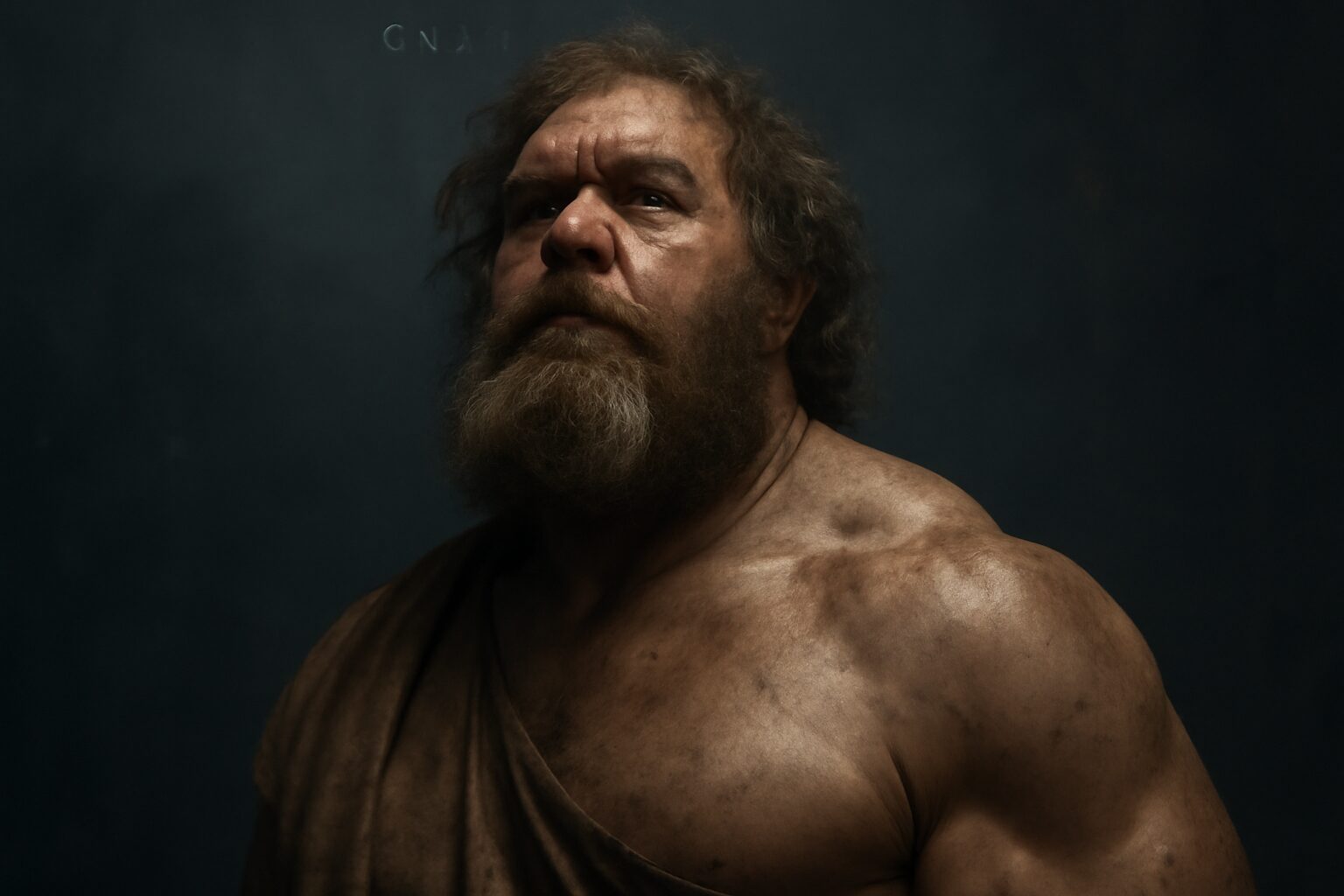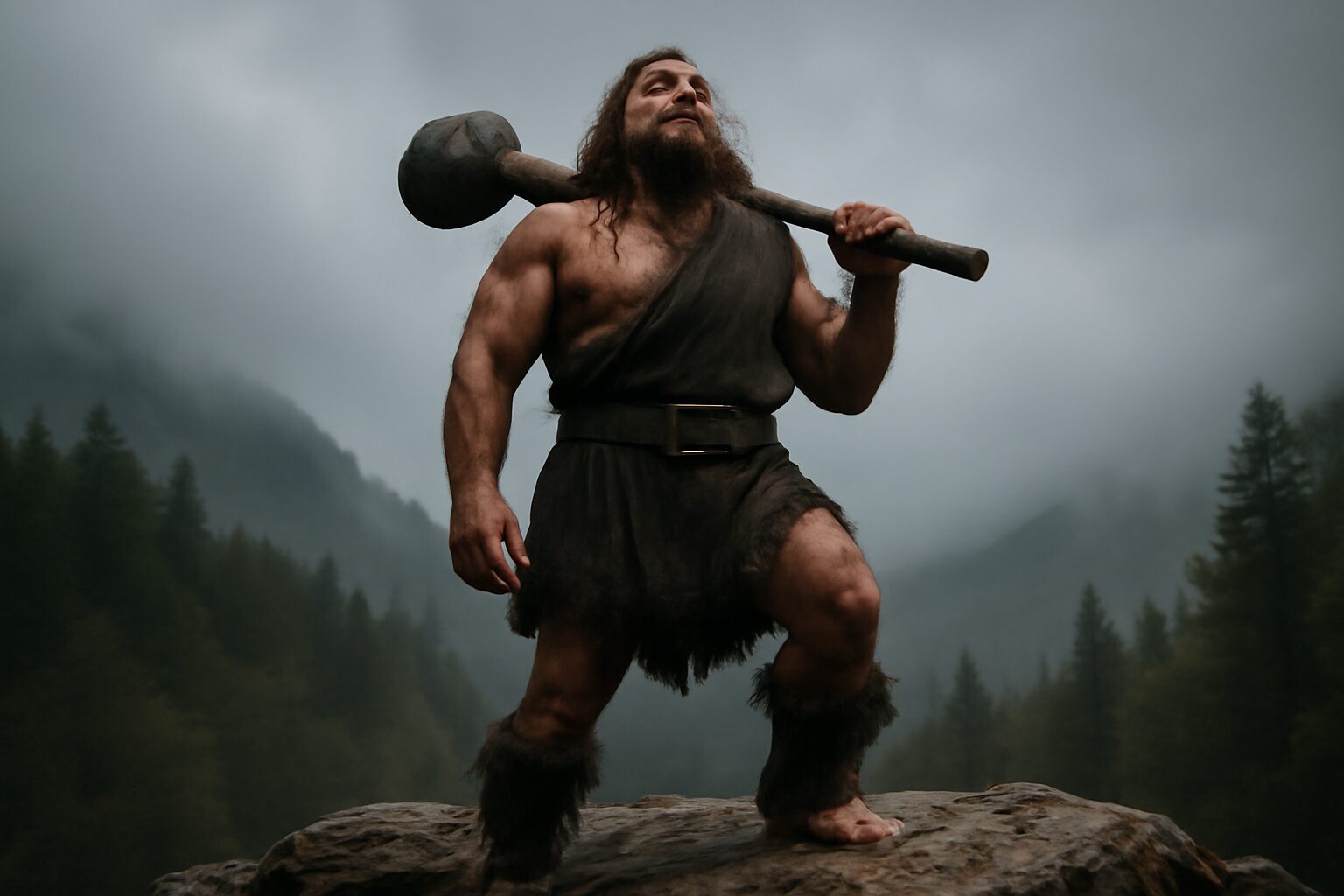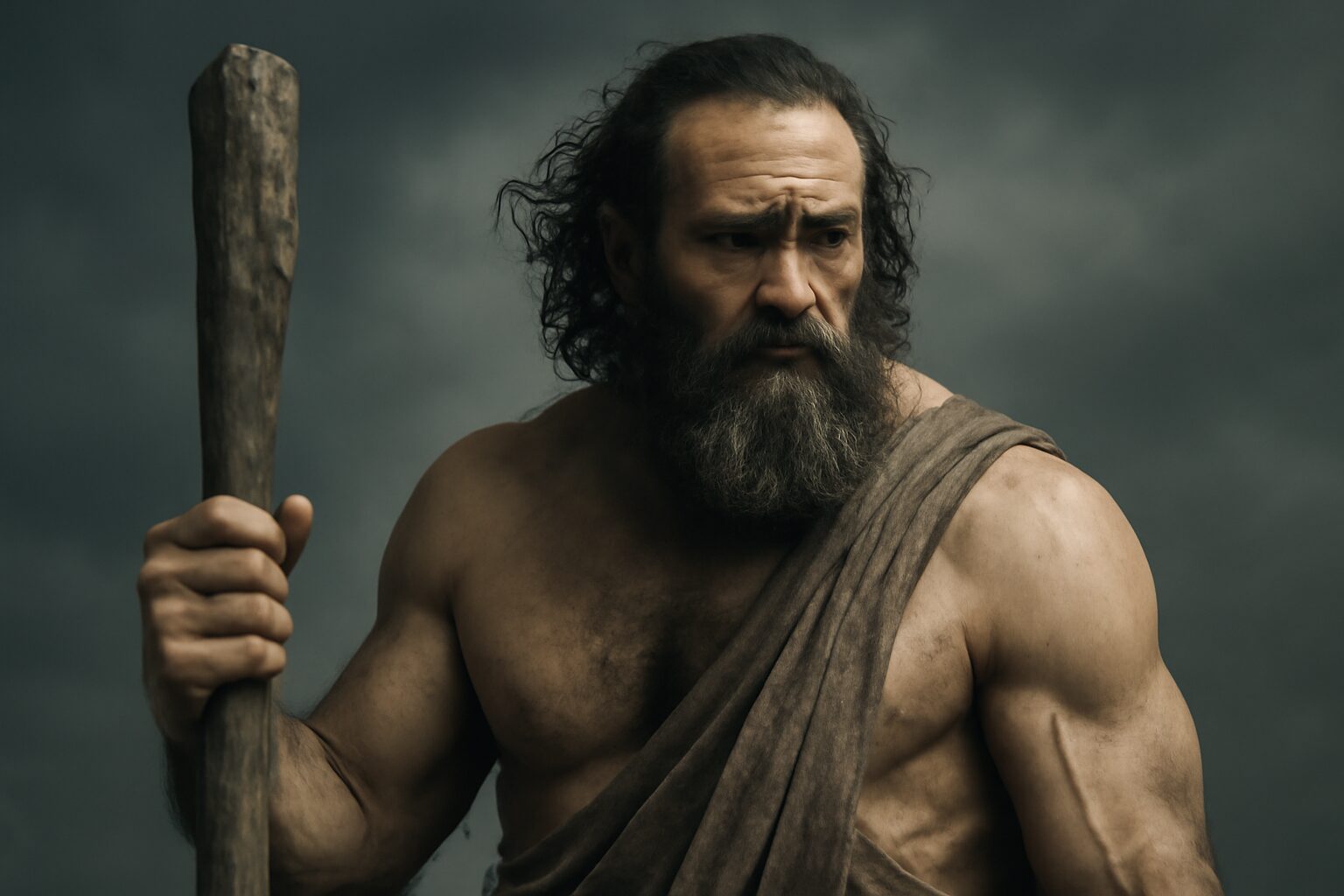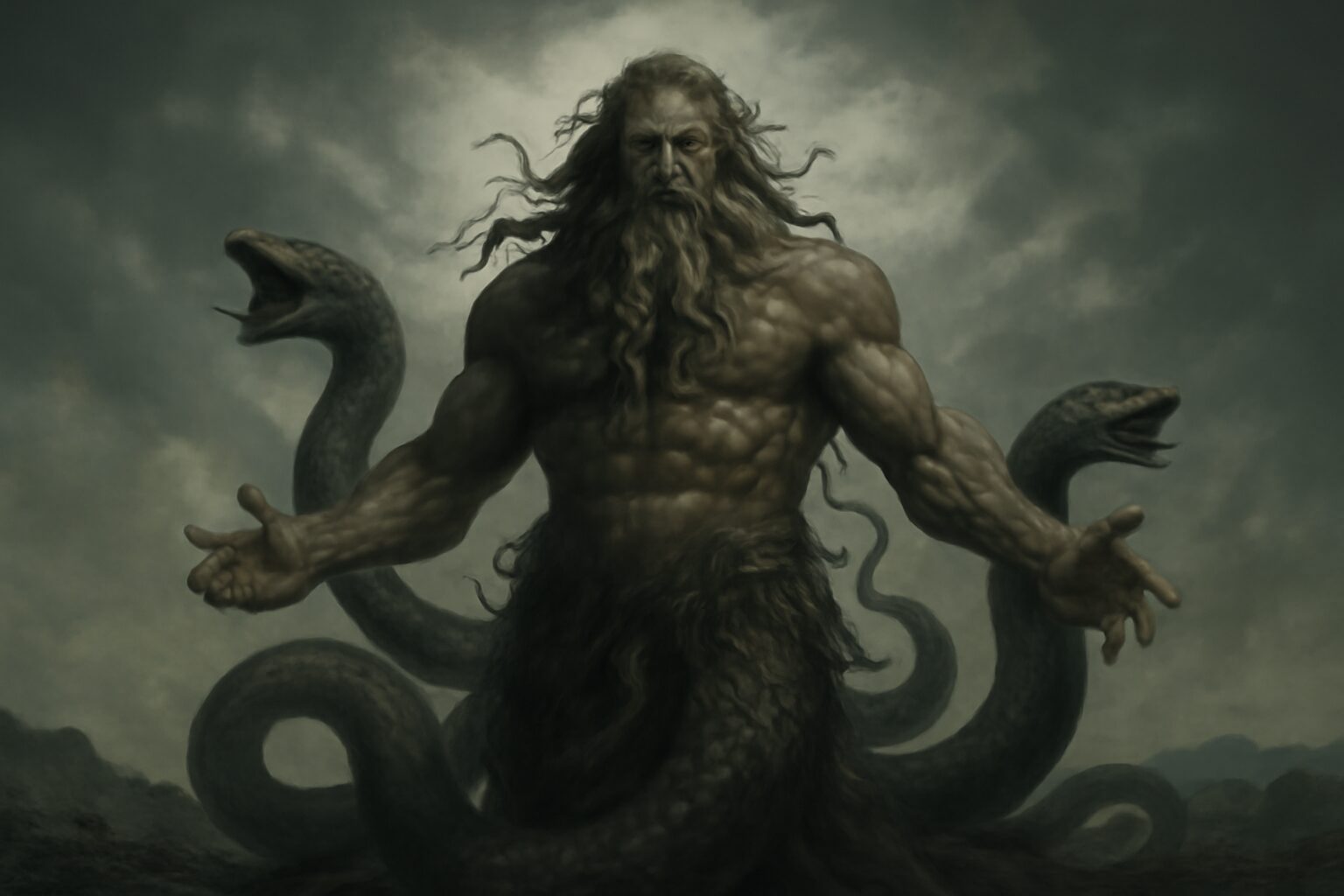Arges: The Cyclops of Thunder and Lightning
In Greek mythology, Arges was one of the three primordial Cyclopes—giant, one-eyed beings known for their incredible strength and craftsmanship. Along with his brothers Brontes (Thunder) and Steropes (Lightning), Arges (whose name means "Bright" or "Dazzling") played a crucial role in shaping the cosmos by forging the weapons of the gods.
Origins and Role in Mythology
Arges and his brothers were the sons of Uranus (the Sky) and Gaia (the Earth). Initially imprisoned in Tartarus by their father, they were later freed by Zeus during the Titanomachy—the great war between the Olympian gods and the Titans. In gratitude, the Cyclopes crafted Zeus's mighty thunderbolt, Poseidon's trident, and Hades' helm of darkness, weapons that secured victory for the Olympians.
Arges, specifically associated with the brilliance of lightning, was said to imbue Zeus's thunderbolts with their dazzling power. His craftsmanship was unmatched, and the weapons he forged became symbols of divine authority.
Powers and Significance
Unlike later depictions of Cyclopes as brutish monsters (such as Polyphemus in The Odyssey), Arges and his brothers were revered as master blacksmiths and divine artisans. Their ability to harness elemental forces—fire, thunder, and lightning—made them indispensable to the gods. Arges' name reflects his connection to radiance, suggesting his role in creating weapons that shone with celestial power.
Beyond weapon-making, the Cyclopes were also credited with constructing massive fortifications, including the walls of Mycenae and Tiryns, which were said to be "Cyclopean" in scale.
Legacy and Fate
Despite their contributions, Arges and his brothers met a tragic end. Some myths suggest they were killed by Apollo in retaliation for Zeus striking Apollo's son, Asclepius, with a thunderbolt. Others claim they continued to serve Zeus in Olympus. Regardless, their legacy endured—Zeus's thunderbolt remained the ultimate symbol of his power, and the Cyclopes were forever remembered as the forgers of destiny.
Arges' story highlights the intersection of craftsmanship, divine will, and raw elemental power in Greek mythology, cementing his place as a pivotal, though often overlooked, figure in the cosmic order.
Alternative Names for Arges
God Name: Brontes (Greek)
Brontes is one of the three Cyclopes in Greek mythology, alongside Arges and Steropes. The name means 'thunderer,' reflecting their association with forging Zeus's thunderbolts.
God Name: Steropes (Greek)
Steropes is another of the three Cyclopes, along with Arges and Brontes. The name means 'lightning' or 'flasher,' tied to their role in creating Zeus's lightning bolts.
God Name: Cyclops (Roman)
In Roman mythology, the Cyclopes (singular: Cyclops) were often referred to collectively, with Arges being one of them. The term 'Cyclops' means 'round-eyed,' describing their single eye.
God Name: Argu00eas (Greek)
An alternative Greek spelling or poetic variant of Arges, meaning 'bright' or 'shining,' referencing his role in crafting divine weapons.
Tales about Arges
The Forging of the Aegis: Arges and Hephaestus
In the fiery depths of Hephaestus's forge, the one-eyed giant Arges was summoned for a task of divine importance. Zeus required a shield of unparalleled strength and brilliance—the Aegis. Arges, known for his mastery over lightning and metallurgy, worked alongside the god of the forge, channeling raw celestial energy into the metal. With each thunderous strike of his hammer, stars seemed to spark within the shield's surface, and the Cyclops’s single eye glowed with intense concentration. Together, they imbued the Aegis with the power to terrify enemies and protect its bearer, creating a symbol of Zeus’s authority that would echo through the ages.
A Clash of Titans and Giants
When the Gigantomachy erupted, pitting the giants against the gods of Olympus, Arges stood with his brethren, ready to challenge the divine order. In the heat of battle, he faced Athena, the goddess of wisdom and war. Arges hurled bolts of forged lightning, but Athena, with her strategic brilliance, deflected his attacks using the very Aegis he had helped create. The irony was not lost on the giant as his own craftsmanship turned against him. Though Arges fought fiercely, the combined might of the gods prevailed, and his defeat became a testament to the cycle of creation and destruction inherent in myth.
The Cyclops and the Sea: Arges and Poseidon
Long before the Gigantomachy, Arges was sought out by Poseidon, god of the seas, who desired a weapon to command the oceans and shake the earth. In a cavern where volcanic fires met the roaring sea, Arges forged the trident—a three-pronged spear of immense power. Using metals mined from the ocean floor and tempered in the heart of a submarine volcano, the Cyclops crafted a weapon that could summon storms, split land, and calm waves. Poseidon, pleased with the result, wielded the trident to become the unrivaled master of the seas, his dominion secured by the skill of the mighty Arges.
The Wrath of the Forgotten Artisan
Despite his contributions, Arges grew resentful that the gods reaped the glory of his labor while his kind remained in the shadows. In a fit of rage, he attempted to reclaim the trident from Poseidon, causing a cataclysmic battle that churned the oceans and threatened coastal realms. The clash underscored the tension between creator and creation, but Poseidon’s control over the waters eventually overwhelmed the giant. Arges was forced to retreat, a reminder that even the greatest of artisans could not overshadow the will of the Olympians.
Frequently Asked Questions
Who are the Gigantes in Greek mythology?
The Gigantes, or Giants, were a race of enormous and powerful beings in Greek mythology. They were born from Gaia (Earth) and the blood of Uranus (Sky) and were known for their strength and aggression. The Gigantes famously battled the Olympian gods in the Gigantomachy, a war that symbolized the struggle between order and chaos.
What was the Gigantomachy?
The Gigantomachy was the epic battle between the Gigantes (Giants) and the Olympian gods. It was one of the most important wars in Greek mythology, representing the clash between the old, primal forces (the Giants) and the new order of the gods. The Olympians ultimately won with the help of Hercules, securing their dominance over the cosmos.
Why are the Gigantes important in Greek mythology?
The Gigantes are important because their battle with the Olympian gods, the Gigantomachy, symbolizes the triumph of order over chaos. It reinforced the power and authority of the Olympian gods and showed how even the mightiest forces of nature could be overcome by divine will and strategy.
How do the Gigantes differ from the Titans?
While both the Gigantes and Titans are powerful beings in Greek mythology, they are distinct groups. The Titans were the older gods who ruled before the Olympians, while the Gigantes were monstrous, earth-born beings who fought against the Olympians. The Titans were more god-like, whereas the Gigantes were often depicted as giant, wild, and chaotic.
Are there any modern interpretations or lessons from the Gigantes myth?
The myth of the Gigantes can be seen as a metaphor for overcoming challenges and maintaining order in the face of chaos. Today, it might represent the struggle against overwhelming odds or the importance of resilience and teamwork, as the gods needed Hercules' help to defeat the Giants.

